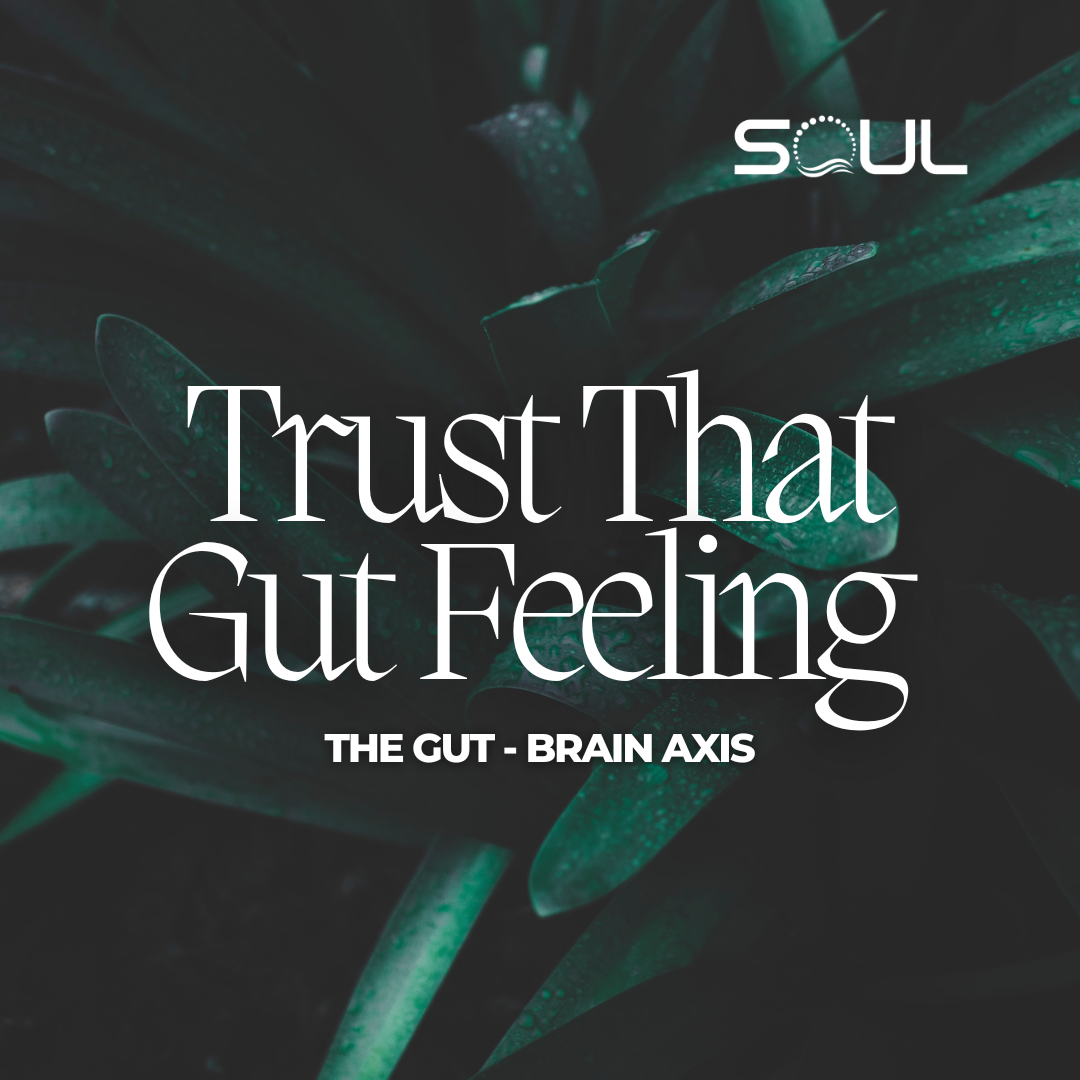
The Gut-Brain Symphony: Unraveling the Intricate Connection Between Your Gut and Mind
Share
Imagine a bustling city where every citizen communicates seamlessly, ensuring the metropolis runs like clockwork. Now, picture this city inside you—a complex network where your gut and brain converse in a language of neurons, hormones, and microbes. Welcome to the fascinating world of the gut-brain axis.
The human body is not just a mere collection of parts; it's an orchestra of interconnected systems. And at the heart of this symphony lies the gut-brain axis—a dynamic duo influencing everything from your mood to your metabolism. Let's embark on a journey to explore this remarkable connection and uncover how nurturing your gut might just be the key to unlocking optimal health.
The Enteric Nervous System: Your Second Brain
Deep within the folds of your intestines resides the Enteric Nervous System (ENS)—a vast network of over 100 million neurons. Dubbed the "second brain," the ENS operates autonomously, managing the intricate dance of digestion, absorption, and gut motility without needing to consult headquarters upstairs.
But why does your gut need its own brain? Consider the gut's primary role: processing nutrients, eliminating waste, and defending against pathogens. These tasks require split-second decisions and complex coordination—a job too critical to rely solely on distant commands from the central nervous system (CNS). The ENS ensures your digestive tract responds swiftly and efficiently, keeping the entire system in harmony.
The Vagus Nerve: The Superhighway of Communication
Connecting these two brains is the vagus nerve, a superhighway transmitting signals between the gut and the brainstem. This bi-directional communication allows for a constant exchange of information. When your gut senses inflammation or an imbalance in nutrient levels, it sends an SOS to the brain. Conversely, stress or anxiety can trigger the brain to alter gut function, leading to that familiar "butterflies in the stomach" sensation.
Think of the vagus nerve as the fiber-optic cable of your internal network—fast, efficient, and crucial for maintaining homeostasis. It's not just a messenger; it's a mediator ensuring both parties are on the same page.
Neurotransmitters: The Chemical Conversations
While we often associate neurotransmitters like serotonin and dopamine with the brain, a significant portion of these chemicals are actually produced in the gut. In fact, about 90% of serotonin is synthesized in your intestinal tract. This neurotransmitter plays a pivotal role in regulating mood, appetite, and even sleep.
When your gut microbiota—the trillions of microbes residing in your intestines—are in balance, they aid in the production and regulation of these neurotransmitters. However, an imbalance can disrupt this process, potentially leading to mood disorders like depression or anxiety. It's a chemical conversation where both the gut and brain contribute to the dialogue, influencing each other's function.
Hormonal Signaling: The Appetite Regulators
Beyond neural communication, the gut and brain engage in hormonal signaling. Hormones like ghrelin (the hunger hormone) and leptin (the satiety hormone) are critical in regulating energy balance. When your stomach is empty, ghrelin levels rise, signaling the brain that it's time to eat. After a meal, peptide YY and GLP-1 are released to promote feelings of fullness.
This hormonal interplay ensures that energy intake aligns with the body's needs. Disruptions in this system can lead to overeating or undereating, highlighting the importance of a healthy gut in maintaining metabolic balance.
The Microbiota: Guardians of the Gut
Your gut microbiota is an ecological wonder—a diverse community of bacteria, viruses, and fungi that perform essential functions. They assist in digesting complex carbohydrates, synthesizing vitamins, and training the immune system. But their influence doesn't stop there.
These microbes produce metabolites like short-chain fatty acids (SCFAs) that can cross the blood-brain barrier, impacting brain function and behavior. They modulate inflammation, influence neurotransmitter production, and even affect stress responses. It's a symbiotic relationship where nurturing your microbiota can lead to profound benefits for your mental and physical health.
The Immune System: The Silent Communicator
The gut is home to a significant portion of the body's immune cells. These cells produce cytokines, signaling molecules that can influence brain function. Chronic inflammation in the gut can lead to increased permeability—often referred to as "leaky gut"—allowing substances to enter the bloodstream that shouldn't be there. This can trigger systemic inflammation, potentially affecting the brain and contributing to neurological disorders.
Understanding the immune component of the gut-brain axis opens new avenues for treating conditions like multiple sclerosis or even Alzheimer's disease, where inflammation plays a key role.
The Future of Gut-Brain Research
As we delve deeper into the gut-brain connection, we're beginning to speculate on mechanisms that could revolutionize medicine. Imagine tailored probiotics designed to produce specific neurotransmitters, effectively treating depression from the inside out. Or consider manipulating gut hormones to combat obesity without invasive surgery.
We're also exploring how gut health impacts neurodevelopmental disorders like autism. Could early intervention in gut microbiota composition alter developmental trajectories? The possibilities are as vast as the microbial populations within us.
Conclusion: Nurturing the Symphony Within
The gut-brain axis is more than a fascinating biological phenomenon; it's a testament to the body's interconnectedness. It's a symphony where each instrument must be finely tuned to create harmonious health. By understanding and nurturing this connection, we have the potential to enhance not just our physical well-being but our mental and emotional health as well.
So, the next time you feel that gut instinct or experience a gut-wrenching emotion, remember that your second brain is hard at work. Feed it well, treat it kindly, and it just might return the favor in ways you never imagined.
